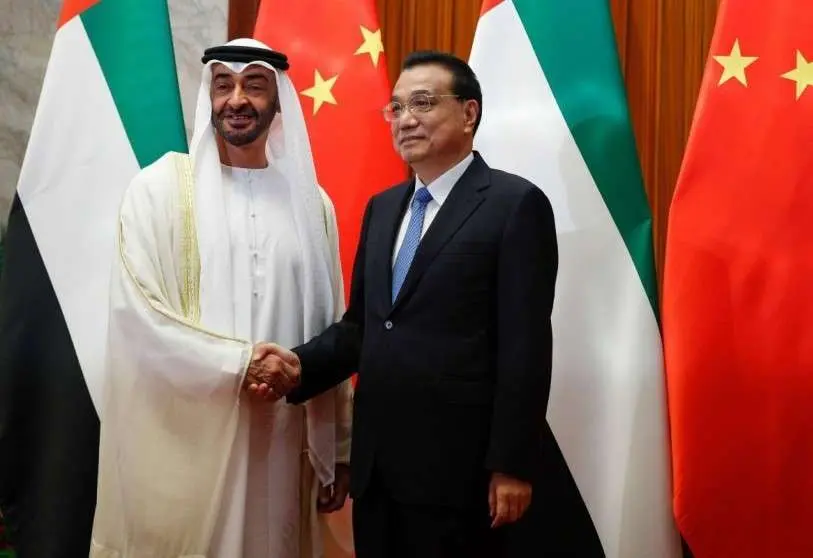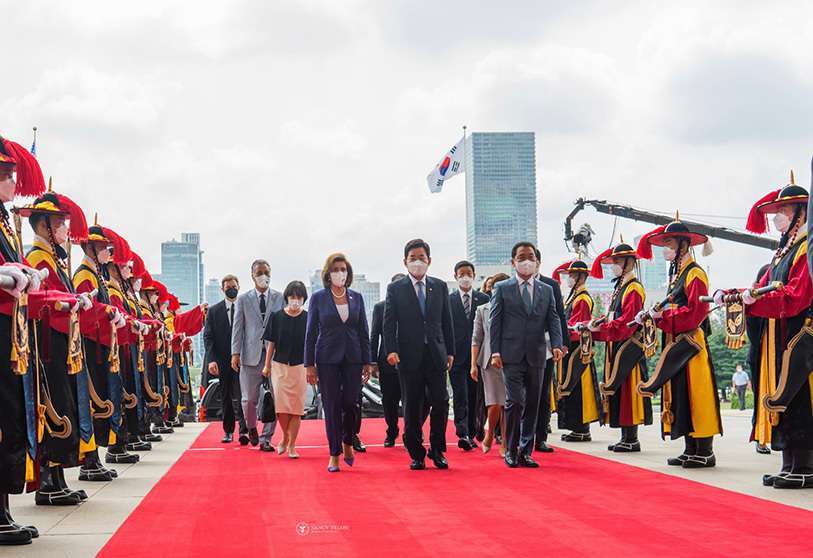UAE shows independence from the US with support for One China

In the midst of US House Speaker Nancy Pelosi's tour of Asia, the UAE government recalled its support for the "One China" plan in a statement issued by its Ministry of Foreign Affairs.
The UAE, which has very deep economic and development cooperation relations with the People's Republic of China, said in its statement that it supports China's sovereignty and territorial integrity, stresses the importance of the "One China" policy and calls on the United Nations to play a role in resolving the decades-long diplomatic dispute.
"The UAE indicated its concern about the impact of any provocative visit on international peace and stability. The Ministry urged that priority be given to diplomatic dialogue in an effort to ensure regional and international stability," the message from the UAE authorities continues.

Following President Biden's visit to the Middle East, the Emirati government has been at pains to demonstrate that the United States is no longer its main and exclusive partner outside the Gulf. The Arab power is demonstrating its independence from White House foreign policy and charting its own course by maintaining relations with both East and West.
This is not new. The Emirates has already taken a pro-China stance and does not maintain relations with the Formosan government. It also, like the vast majority of Arab countries, refrained from condemning Russia's invasion of Ukraine at the UN General Assembly in March. More recently, it supported its OPEC+ partners along with Saudi Arabia and agreed not to alter Russia's position in the oil producers' organisation or change the roadmap for oil production as the US and the EU have been demanding since the start of the Ukrainian war.
The United States is having a hard time trying to maintain its hegemony in the region, from which it is progressively distancing itself. An effect that the Trump administration has accelerated in a surprising way, but which has been brewing since Obama. The Patriot missile systems sent at the request of the Gulf states to stop Houthi drone attacks are of no use. The Emirates and its partners are not dependent on the US.
Pelosi's move in Asia, motivated by her strong convictions on independence with Taiwan, is not paying off for the White House, which has already warned the Speaker of the House about the bad timing of her tour. "It's not a good idea right now," Joe Biden summed up at a press conference. Finally, even the South Korean speaker's stand-off can be interpreted as a 'no' to Pelosi's Asian ways, perhaps too old-fashioned for the new Pacific configuration.

China and the UAE have future plans for cooperation in a number of areas. While it has earned reprimands from the US Congress, excluding the UAE from the programme to acquire the F-35 fighter for example, the union has not dampened its partnership intentions with the Asian giant. Fields of cooperation include military, energy, aerospace and aviation, as well as new service technologies. Over the past 10 years, China has managed to conclude 50 agreements with the UAE. In 2019 alone, 16 treaties were signed by both authorities. The most important of these was the Economic and Technical Cooperation Agreement, which was articulated by the Joint Economic Committee.
China, for its part, is eager to bite into the interesting cake of the Gulf Cooperation Council market, something that Xi Jinping assured Mohamed bin Zayed al Nahayan during a meeting on the sidelines of the 2022 Winter Olympics in Beijing, according to Emirati sources. According to the Emirati daily Al-arab, the two leaders agreed to accelerate negotiations for a Free Trade Agreement.
Americas Coordinator: José Antonio Sierra.








